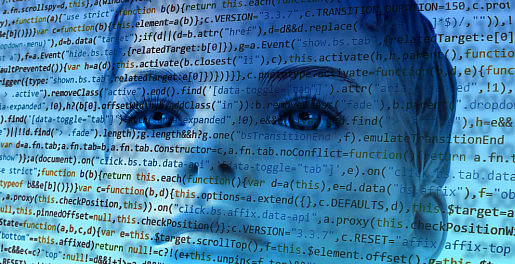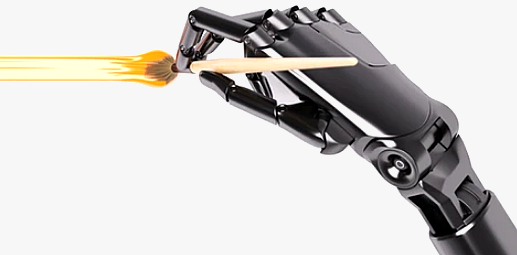Accredited InvestorsAltcoinAnatoli UnitskyAnti-Money Laundering (AML) In CryptoAPIArbitrageArtCoin TokenArticle DirectoryASICAuction Terminology GlossaryBasics of Stock Market InvestingBear MarketBest Crypto Payment Provider In the WorldBitcoinBlockchainBlockchain ConfirmationBlockchain Consensus MechanismBlockchain ForkBlockchain GlossaryBored Ape Yacht ClubBuild a Business That OutperformsBull MarketBuying SkyWay SharesByzantine Fault Tolerance (BFT) ExplainedCasascius CoinCentral Bank Digital Currency (CBDC)Centralized Crypto ExchangeCoinCoinsetCold WalletCollateralCommodity Futures Trading Commission (CFTC)Cross-Chain TechnologyCRUCrypto ExchangeCrypto GlossaryCrypto JokesCrypto Terms to KnowCrypto TickerCryptocurrencyCryptographyCryptojackingCryptounit BlockchainCryptounit GlossaryCryptounit ProgramdApp (Decentralized Application)Dead CoinDecentralized Exchange (DEX)Decentralized Finance (DeFi)Difference Between Bitcoin and EthereumDifferent Ways of Investing MoneyDigital CurrencyDistributed LedgerDo Your Own Research (DYOR)Dollar Cost Averaging (DCA)Dow Jones Industrial Average (DJIA)EncryptionERC-20ERC-721EthereumEvoScentFear Of Missing Out (FOMO)Fear, Uncertainty and Doubt (FUD)Fiat MoneyFNT Fintech CompanyGenesis BlockGlobal Unit PayGlossary of Banking TermsGlossary of Business TermsGlossary of Financial TermsHalvingHODLHot WalletHow Do I Start InvestingHow Rich is Satoshi Nakamoto?How to Create a BlockchainHow to Find Private InvestorsHow to Get Into FintechHow to Program Smart ContractsI Am Thrilled to Be a Part of This Global ProjectInitial Coin Offering (ICO)Initial Public Offering (IPO)Initial Token Offering (ITO)Innovation Basalt TechnologyInnovative Transportation TechnologiesInternational Bank Account Number (IBAN)Investing in Gold Mining StocksInvesting in Gold MiningJagerJoy of Missing Out (JOMO)Know Your Customer (KYC)LedgerLiquidity in CryptocurrencyMaker and Taker Fees in Crypto TradingMarket Capitalization (Market Cap)Meme CoinMetal Credit CardMetaMaskMillenials Now Have Access to Generational WealthMy Best Investment EverNew Digital EvolutionNFT GlossaryOff-Chain TransactionsOn-Chain TransactionsOpen Edition NFTPeer-to-Peer (P2P)Personal Loan GlossaryProbably the Best STO on the MarketProof of Stake (PoS)Real Estate Glossary of TermsReal Estate Investing GlossaryRebase TokenSecurities and Exchange Commission (SEC)Security Token ExchangesSecurity Token Offering (STO)Soulbound Decentralized Identities for Security TokensSoulbound ID Launch by Stobox Proves a SuccessSoulbound TokensStoboxStock Market GlossaryTestimonialsTether Platform and Token (USDT)UnitEx ExchangeUnitsky String TechnologiesUNTBUSDUValidatorWe Started Investing When We Were 25What are Blue Chip NFT?What are Blue Chip Stocks?What are Crypto Assets?What are Crypto Smart Contracts?What are CryptoPunks NFT?What are Digital Assets?What are Digital Collectibles?What are Gas Fees?What are Gas Wars?What are Hashmasks?What are Non Fungible Tokens?What are Non-Sufficient Funds (NSF)?What are Soulbound Tokens (SBT)?What are Stablecoins in Crypto?What are Transactions Per Second (TPS)?What are Utility NFTs?What are Utility Tokens?What Does Burning Crypto Mean?What Does Diamond Hands Mean?What Does Paper Hands Mean?What Does To The Moon Mean?What Does WAGMI Mean?What Happened to Satoshi Nakamoto?What is a 51% Attack?What is a Baby Boomer?What is a Backlink?What is a Banner?What is a Barcode?What is a Bid-Ask Spread in Crypto?What is a Block in Blockchain?What is a Block Reward?What is a Blockchain Address?What is a Blockchain Node?What is a Blockchain Oracle?What is a Blog?What is a Bond?What is a Bot?What is a Broker?What is a Business Accelerator?What is a Cash Cow?What is a Commercial Bank?What is a Commodity?What is a Con?What is a Credit?What is a Credit Limit?What is a Credit Rating?What is a Crypto Airdrop?What is a Crypto Bridge?What is a Crypto Scam?What is a Crypto Token?What is a Crypto Wallet?What is a Crypto Whale?What is a Crypto Winter?What is a Cryptocurrency Public Ledger?What is a Cryptocurrency Roadmap?What is a DAO?What is a Dark Pool?What is a Day Trader?What is a Dead Cat Bounce?What is a Default?What is a Derivative?What is a Digital Credit Card?What is a Fiscal Quarter?What is a Fungible Token?What is a Governance Token?What is a Grace Period?What is a Hard Fork?What is a Hot Wallet?What is a Hybrid Blockchain?What is a Hybrid PoW/PoS?What is a Joint Account?What is a Market Cap?What is a Merkle Tree in Blockchain?What is a Mining Farm?What is a Nonce? What is a PFP NFT?What is a POS System?What is a Prepaid Card?What is a Private Blockchain?What is a Private Key?What is a Public Blockchain?What is a Public Key?What is a Reserve Currency?What is a Ring Signature?What is a Routing Number?What is a Rug Pull in Crypto?What is a Safe Deposit Box?What is a Satoshi?What is a Security Token?What is a Seed Phrase?What is a Shitcoin?What is a Sidechain?What is a Soft Fork?What is a Spot Market?What is a State Bank?What is a SWIFT Code?What is a Tax Identification Number (TIN)?What is a Time Deposit?What is a Transaction Account?What is a Variable Interest Rate?What is a Virtual Assistant (VA)?What is a Virtual Card?What is a Virtual Currency?What is a Visa Card?What is a Whitelist in Crypto?What is a Whitepaper?What is Accounts Payable (AP)?What is AMA in Crypto?What is Amortization?What is an Accrual?What is an ACH Transfer?What is an Actuary?What is an Addendum?What is an Algorithm?What is an Angel Investor?What is an Annuity?What is an Asset?What is an ATM?What is an Atomic Swap?What is an Audit?What is an Avatar?What is an EIN?What is an Embargo?What is an Entrepreneur?What is an IDO (Initial Dex Offering)?What is an Interest Rate?What is an Internet cookie?What is an Investment Bank?What is an NFT Drop?What is an NFT Floor Price?What is an Ommer Block?What is an Orphan Block?What is an Outstanding Check?What is an Overdraft?What is Artificial Intelligence (AI)?What is B2B (Business-to-Business)?What is B2G (Business-to-Government)?What is Bartering?What is Bitcoin Dominance?What is Bitcoin Pizza Day?What is Blockchain Immutability?What is Blockchain Used For?What is BRICS?What is Business-to-Consumer (B2C)?What is C2C (Customer to Customer)?What is Capitalism?What is Catfishing?What is CFD Trading?What is Check Kiting?What is Cloud Mining?What is Communism?What is Content Marketing?What is Decentralization in Blockchain?What is DeFi in Crypto?What is Delisting?What is Depreciation?What is Digital Marketing?What is Diversification?What is Double Spending?What is Dumb Money?What is Dumping?What is Earnings Per Share (EPS)?What is Economics?What is Email Marketing?What is Equity?What is Etherscan?What is Fintech?What is Foreign currency?What is Forex?What is Fundamental Analysis (FA)?What is GameFi?What is Generative Art NFT?What is Gwei?What is Hard Currency?What is Hash Rate?What is Hashing in Blockchain?What is Inflation?What is Initial Game Offering (IGO)?What is Interest?What is Interest Income?What is Mainnet?What is Mastercard?What is Metaverse in Crypto?What is Mining in Cryptocurrency?What is Minting NFT?What is Mobile Banking?What is Money Laundering?What is NFT Alpha?What is NFT Metadata?What is NFT Rarity?What is NGMI Meaning?What is Nominal Interest Rate?What is Online Banking?What is Open-End Credit?What is OpenSea NFT Marketplace?What is Personal Identification Number (PIN)?What is Play-to-Earn?What is Polygon?What is Proof of Authority (PoA)?What is Proof of Work (PoW)?What is Public Key Cryptography?What is Pump and Dump?What is Quantum Computing?What is Refinancing?What is Retail Banking?What is Ripple?What is Sharding?What is Slippage in Crypto?What is Smart Money?What is Solvency?What is Soulbound ID?What is SSL?What is Staking in Cryptocurrency?What is Technical Analysis (TA)?What is Testnet?What is the Ask Price?What is the Better Business Bureau (BBB)?What is the Bid Price?What is the Dark Web?What is the InterPlanetary File System (IPFS)?What is the Gold Standard?What is the Lightning Network?What is the Prime Rate?What is the Sandbox?What is the Secondary Market?What is the World Bank?What is Tier 1 Capital?What is Tokenomics?What is TRC-20?What is Universal Banking?What is Unspent Transaction Output (UTXO)?What is Usury?What is Volatility in Crypto?What is Wash Trading?What is Web3?What is Whisper?What is XRP?What is Zero-Knowledge Proof (ZKP)?Who is Beeple?Who is Satoshi Nakamoto?Who is Vitalik Buterin?Why Tokenization is a Safe HavenWhy You Should Try Your Hand at Trading
What is Artificial Intelligence (AI)?
- Home
- Glossary of Business Terms
- What is Artificial Intelligence (AI)?
As technology progresses, the previous standards that once defined artificial intelligence are becoming obsolete.

Basic tasks such as calculating mathematical functions or recognizing text through optical character recognition, which were once considered as markers of AI, are now viewed as inherent computer functions and are no longer sufficient to define AI.
What is Artificial Intelligence (AI)?
Artificial intelligence (AI) is a field of computer science and engineering that focuses on developing intelligent machines that can simulate human intelligence and thought processes. The goal of AI is to create machines that can perform tasks that typically require human intelligence, such as learning, problem-solving, reasoning, and perception.
AI has been a hot topic in the tech industry for years, and it's no surprise why. The possibilities are endless. AI has already revolutionized many fields, such as healthcare, transportation, and finance. However, it's important to understand what AI is, how it works, and what it's capable of before we can fully grasp its potential.
AI is a broad field that encompasses many different technologies and approaches, but at its core, it's about creating machines that can perform tasks that would normally require human intelligence. These tasks can range from simple pattern recognition to complex decision-making and problem-solving.
AI can be divided into two main categories: narrow or weak AI and general or strong AI. Narrow AI is designed to perform a specific task, such as image recognition or language translation. In contrast, general AI is designed to be as versatile as human intelligence, capable of performing a wide range of tasks and adapting to new situations.
How Does AI Work?
AI systems rely on a combination of algorithms, data, and machine learning to perform their tasks. Algorithms are sets of rules and instructions that tell a computer what to do. Data is the information that a machine learns from, and machine learning is the process by which a machine improves its performance over time by learning from that data.
Machine learning is a key aspect of AI because it allows machines to learn from experience and adapt to new situations. There are three main types of machine learning: supervised learning, unsupervised learning, and reinforcement learning. Supervised learning involves training a machine on labeled data, while unsupervised learning involves training a machine on unlabeled data. Reinforcement learning involves training a machine to learn from its own actions and the resulting feedback.
What Can AI Do?
AI has already revolutionized many fields and has the potential to transform countless more. In healthcare, AI is being used to diagnose diseases, analyze medical images, and develop new treatments. In transportation, AI is being used to develop autonomous vehicles that can improve safety and efficiency on the roads. In finance, AI is being used to detect fraud and make investment decisions.
However, AI is not without its challenges. There are concerns about job displacement and the potential for AI to be used in harmful ways. It's important for researchers, policymakers, and the public to work together to ensure that AI is developed and used in a responsible and ethical way.
The Four Types of Artificial Intelligence
Artificial intelligence can be classified into four distinct types, each with varying capabilities and limitations.
The first type is Reactive AI, which uses algorithms to optimize outputs based on a set of inputs. These systems are static and cannot adapt to novel situations. For example, chess-playing AIs are reactive systems that optimize the best strategy to win the game.
Limited memory AI is the second type, which can adapt to past experience or update itself based on new observations or data. These systems have a limited ability to update, and the length of memory is relatively short. Autonomous vehicles are an example of limited memory AI, which can "read the road" and learn from past experiences.
Theory-of-mind AI, the third type, have an extensive ability to learn and retain past experiences, and they are fully adaptive. These AI include advanced chatbots that could fool a person into believing they are human, passing the Turing Test. However, these AI are not self-aware.
Finally, the fourth type is Self-aware AI, which is still in the realm of science fiction. These AI would become sentient and aware of their own existence. Many experts believe that an AI will never become conscious or "alive."
AI and Cryptocurrencies
AI is being used in the cryptocurrency industry to enhance trading strategies, risk management, and fraud detection.
One of the primary applications of AI in the cryptocurrency industry is algorithmic trading. Cryptocurrency markets are highly volatile, and AI-powered trading algorithms can analyze vast amounts of data in real-time to identify profitable trading opportunities and execute trades automatically.
AI is also being used to improve risk management in the cryptocurrency industry. By analyzing historical data and identifying correlations between different assets and factors that influence their performance, AI systems can create risk models that help investors assess the potential downside of their investments and adjust their portfolios accordingly.
Another important use case for AI in the cryptocurrency industry is fraud detection. Cryptocurrency transactions are irreversible, which makes them a target for fraudsters. AI-powered systems can monitor transactions in real-time and identify suspicious activity, such as transactions from known criminal organizations or individuals engaging in money laundering.
Related Articles

Investment Consultant Video Course
A student acquires skills that can be immediately apply in practice. Here is a short list: Artificial intelligence in investing.

What is Generative Art NFT?
However, art made entirely by artificial intelligence (AI) is emerging as a new and exciting frontier. Collectors are buying in, as evidenced by the sale of a collection of...

Exchanges for Security Tokens
Our artificial intelligence, cyber-security and ultra-high-powered computing offer us distinct advantages over any other solution. We develop the best...
- Home
- Glossary of Business Terms
- What is Artificial Intelligence (AI)?